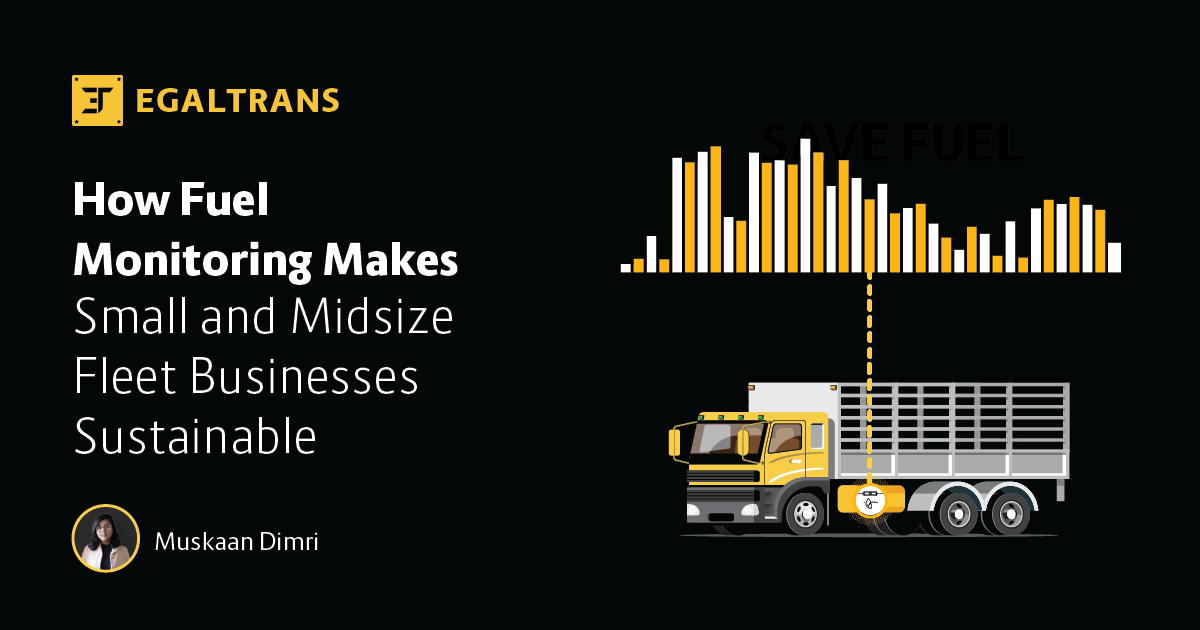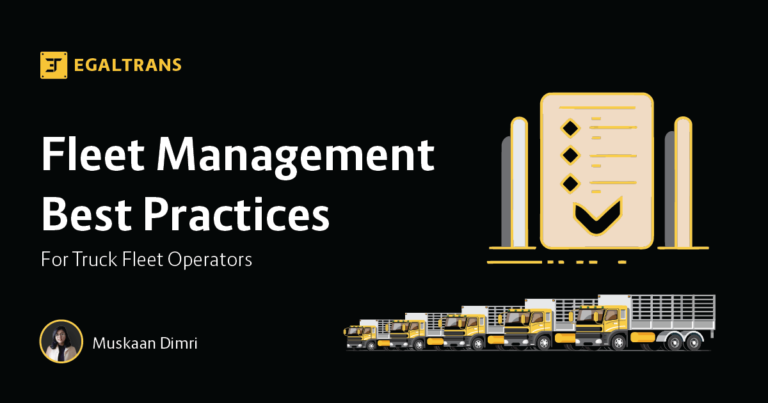The trucking industry is the backbone of global commerce. It ensures the timely movement of goods, impacting various sectors from manufacturing to retail. There is a rising global concerns about environmental sustainability and the consistent fluctuation in fuel prices. It’s of paramount importance for small and midsize fleet businesses to adopt practices that ensure economic and environmental longevity. One such practice is fuel monitoring. It plays a key role in building sustainable fleet business.
What is a Sustainable Trucking Business?
A sustainable trucking business is one that adopts environmentally-friendly practices and prioritizes long-term viability over short-term gains. Such a business actively works to reduce its carbon footprint by integrating cleaner fuels, advanced vehicle technologies, and efficient operational methods. Beyond environmental considerations, sustainability in trucking also encompasses economic and social dimensions. They must also ensure fair wages, promoting employee well-being, and engaging in responsible community interactions.
Usually Small fleet businesses face challenges such as high operational costs, regulatory compliance, volatile fuel prices and many more. To achieve sustainability and to maintain their business they should plan out a framework and work upon it for a longer run. They should invest in efficient fleet management systems, maintain rigorous financial discipline, regularly train drivers for safety and efficiency, foster customer relationships, and adapt to changing market conditions through diversification and continuous market research.
Here’s a look at how fuel monitoring helps small fleet businesses sustainably.
1. Cost Efficiency Through Reduced Fuel Wastage
Fuel often represents a significant chunk of operational costs in the trucking business. For small and midsize fleet owners, ensuring every drop counts can make a vast difference in profitability. With fuel monitoring systems, fleets can track real-time fuel consumption, pinpoint inefficiencies, and minimize wastage. By identifying and addressing issues like fuel theft or tank leakage, businesses can save substantially.
2. Optimized Driving Habits
Fuel monitoring isn’t just about tracking the amount of fuel used; it’s also about understanding how it’s consumed. Monitoring solutions often provide insights into driving habits, such as harsh braking, rapid acceleration, or prolonged idling. By addressing these behaviors, fleets can achieve better fuel efficiency, thereby lowering operational costs.
3. Predictive Maintenance
An efficient fuel monitoring system can also provide insights into engine performance. When the engine consumes more fuel than usual, it could be an indicator of a potential mechanical problem. Addressing these issues with the help of vehicle maintenance in their infancy stages can reduce long-term maintenance costs and ensures the fleet remains on the road without unexpected downtimes.
4. Improved Customer Trust
In today’s world business choosing sustainable practices are preferred. By ensuring optimal fuel usage and promoting sustainability, fleet businesses can position themselves as environmentally responsible, which can improve trust and foster long-term customer relationships.
5. Enhanced Fleet Lifespan
Regular fuel monitoring can indirectly lead to a longer lifespan for vehicles. As drivers adapt to more efficient driving habits and maintenance issues are addressed promptly, wear and tear on the vehicles are minimized.
Sustainability in the trucking industry isn’t just a buzzword – it’s a necessity. As the world shifts towards more eco-friendly practices, businesses, big or small, must adapt. Fuel monitoring presents a dual opportunity for small and midsize fleet businesses: a chance to optimize costs and embrace environmental responsibility. Having built a sustainable fleet business, fleet owners can relax as their business will keep growing.





